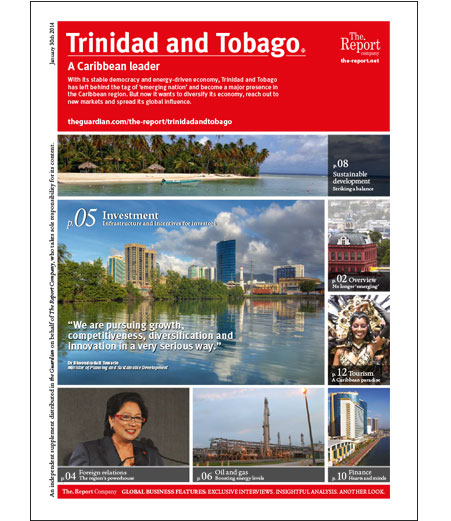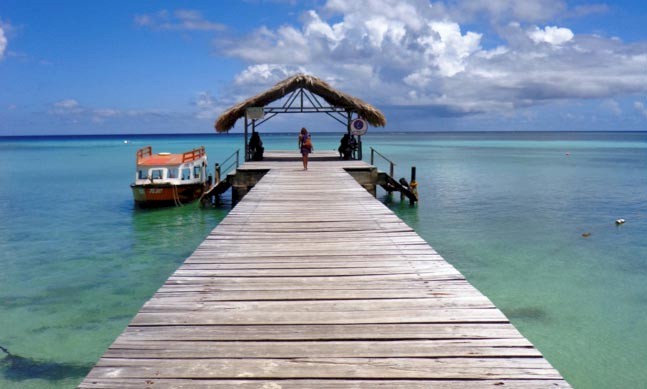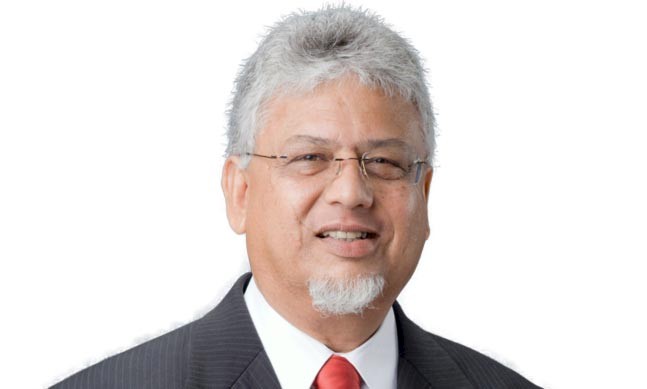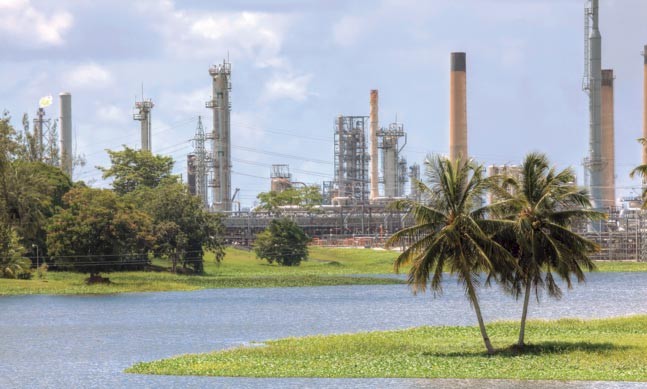With over 13 years of corporate, investment and merchant banking experience at major financial institutions, Duane Hinkson, who took the helm at First Caribbean International Bank in January 2013, is focussed on building and strengthening the business within Trinidad and Tobago, which he sees as a key market for the Caribbean.
The Report Company: How would you appraise the financial sector within Trinidad and Tobago?
Duane Hinkson: There are eight commercial banks in Trinidad and then a whole host of non-bank financial institutions. Some have had a big retail focus, some have had just a corporate bank focus, and some have had a niche focus. Despite having a bankers’ association to plan the approach to the market I think that there hasn’t been enough cohesion in terms of advancing the industry as a whole. We are also feeling the impact of some of the external forces which are being exerted, particularly by the US.
You can’t think about your bank alone. We have to think sector-wide because if the country doesn’t meet certain criteria it gets blacklisted. External factors have driven banks to work together more on the backend and the banking industry is being forced to look internally at how it operates, partially because of market forces and partially because of external regulatory forces.
The financial sector is a very known quantity in Trinidad. It’s a large driver of the economy. We have the talent pool in Trinidad, the relative cost is good as well and the telecommunications and ICT structure is good. I think we’re going to see continued external expansion from the domestic financial institutions as they max out in Trinidad.
TRC: You have operations in 17 regional markets; how is Trinidad and Tobago different?
DH: When CIBC formed First Caribbean, which was a merger between itself and Barclays, it was really the first major external investment from a business standpoint. There was no CIBC or Barclays in Trinidad when First Caribbean was formed and the bank didn’t actually come into Trinidad until around 2004-2005, so Trinidad is different.
In all the other regional territories you will find there’s a traditional retail banking structure in place. In Trinidad we have a very limited retail offering which targets high net worth individuals, but we have a very strong corporate banking business and that is what makes Trinidad different. A lot of the investment banking team is located in Trinidad because the Trinidad economy is the most active and vibrant out of all the economies that we are in.
Trinidad differs from most of the Caribbean islands in that it has a true economy with industry, oil and gas, manufacturing, trade, financial services and the whole spectrum of business.
TRC: From your perspective, which reforms do you think should be made in order to foster growth in Trinidad and Tobago?
DH: One of the major challenges we have is with respect to the efficiency of the public sector. There’s a strong trade union movement in the country and I don’t always get the impression that the trade unions fully take into consideration the macro perspective.
TRC: How has the First Caribbean brand positioned itself?
DH: We did a cobranding exercise in 2011 and the reason for that was to show the commitment by the parent company to the subsidiary. We wanted to leverage the CIBC brand given that the market was difficult and CIBC has been around in these countries for nearly 100 years. Internally there have been a lot of projects to try and beef up processes and systems. My particular view is that at the end of the day we are not in Canada, and so while we want to get a lot of CIBC’s best practices across, such as systems and infrastructure and risk architecture, with respect to culture we have to be very careful because we are a Caribbean bank who has Canadian features.
“We have to think sector-wide because if the country doesn’t meet certain criteria it gets blacklisted. External factors have driven banks to work together more on the backend and the banking industry is being forced to look internally at how it operates, partially because of market forces and partially because of external regulatory forces.”Post This
I think that we are getting closer to where we want to be and just developing that mixture of the Canadian and the Caribbean is helping across the region on a number of fronts.
TRC: The US Internal Revenue Service (IRS) a request for information on US taxpayers with offshore accounts at First Caribbean International Bank earlier this year. What impact did that have on the business?
DH: It didn’t impact the business. The fact of the matter is that it was a bit surprising because it’s jumping the gun. We’ve all been moving towards the FATCA process, so when this John Doe summons came about from a court on the West Coast it seemed to be almost redundant because we’ve been working with our FATCA deadlines and this was essentially more of the same. So there was no impact; it’s not that the bank was doing anything to prompt an investigation, it was just whatever they were looking at with Wells Fargo who are our correspondent bank. It seemed to be a pre-emptive move and an unnecessary one because FATCA is there; they just gave a six month extension by which banks have to comply. All the summons did was to disrupt our operations. We have no issues; we’ve let all the regulators in all the islands know that this thing came in and we’re just going along with the request.
TRC: What is the bank’s approach to CSR?
DH: Every year 1 percent of the profits go into our Comtrust Foundation which carries out myriad CSR activities. We have a focus on the youth and increasingly we’ve had a greater focus on wellness across the islands. We have had some major initiatives, one of which has been Unsung Heroes where within each country nominations are taken from the public for people who do a lot for the community or a particular cause and are not recognised. Last year’s winner came from Trinidad.
There’s also something that is done is all the countries called Adopt a Cause and this is not usually a one-shot thing, it’s an ongoing relationship whether it be social or environmental or sport. Over the years we have done a number of things with children’s homes. I have said I’d like to do an environmental cause as well as a social cause because despite all the discussions worldwide I still don’t think the environmental message has sunk in. Even though there may be a greater prevalence of social need, long term the environment is just as critical.
Then there are also ad hoc things we do in terms of sponsorship and that kind of thing. Every day I get letters asking for help, so I also have a small discretionary budget that I can use. On multiple layers, the bank does have a fairly good CSR approach. I’m not saying that it can’t do more but we have to keep within the budget.
TRC: What is your assessment of the relationship between Trinidad and Tobago and CARICOM?
DH: Despite CARICOM having been in place for a while, the heads of government still haven’t really worked out a model for it. A big part of the problem is Trinidad because we are a big exporter to all these islands. The big trade deficit between Jamaica and Trinidad means that Jamaicans feel there is not enough reciprocity. There could be a lot more interconnectivity between the islands. It’s a lot of small islands with very narrow open economies but I don’t think anybody is at the point yet where they are willing to look at joining together, but if the EU could do it with its big huge economies, I don’t see why 17 small little islands can’t do it.










